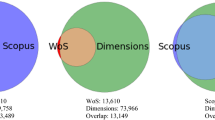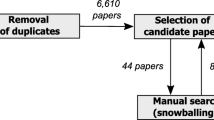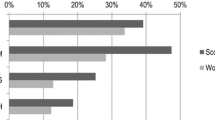Abstract
While the citation context of a reference may provide detailed and direct information about the nature of a citation, few studies have specifically addressed the role of this information in retrieving relevant documents from the literature primarily due to the lack of full text databases. In this paper, we design a retrieval system based on full texts in the PubMed Central database. We constructed two modules in the retrieval system. One is a reference retrieval module based on citation contexts. Another is a citation context retrieval module for searching the citation contexts of a specific paper. The results of comparisons show that the reference retrieval module performed better than Google Scholar and PubMed database in terms of finding proper references based on topic words extracted from citation context. It also performed very well on searching highly cited papers and classic papers. The citation context retrieval module visualizes the topics of citation contexts as tag clouds and classifies citation contexts based on cue words in citation contexts.





Similar content being viewed by others
Notes
Scientific Literature Digital Library, http://citeseer.ist.psu.edu.
Google search engine, for peer-reviewed scholarly literature, http://scholar.google.com.
References
Anderson, M. H., & Sun, P. Y. T. (2010). What have scholars retrieved from Walsh and Ungson (1991)? A citation context study. Management Learning, 41(2), 131–145.
Boyack, K. W., Small, H., & Klavans, R. (2012). Improving the accuracy of co-citation clustering using full text. Journal of the American Society for Information Science and Technology, 64, 1759–1767.
Bradshaw, S. (2003). Reference directed indexing: Redeeming relevance for subject search in citation indexes. Paper presented at the Proceedings of the 7th European conference on digital libraries, Trondheim.
Callahan, A., Hockema, S., & Eysenbach, G. (2010). Contextual cocitation: Augmenting cocitation analysis and its applications. Journal of the American Society for Information Science and Technology, 61(6), 1130–1143.
Elkiss, A., Shen, S., Fader, A., Erkan, G., States, D., & Radev, D. (2008). Blind men and elephants: What do citation summaries tell us about a research article? Journal of the American Society for Information Science and Technology, 59(1), 51–62.
Eto, M. (2012). Evaluations of context-based co-citation searching. Scientometrics, 94(2), 651–673.
Gipp, B., & Beel, J. (2009). Identifying related documents for research paper recommender by CPA and COA. Paper presented at the Proceedings of International Conference on Education and Information Technology, Berkeley.
Halvey, M., & Keane, K. (2007). An Assessment of Tag Presentation Techniques. Paper presented at the 16th International World Wide Web Conference, Banff.
He, Q., Pei, J., & Kifer,D. (2010). Context-aware Citation Recommendation. Paper presented at the 19th International World Wide Web Conference, Raleigh.
Hunter, L., & Cohen, K. (2006). Biomedical language processing: What’s beyond pubmed? Molecular Cell, 21(5), 589–594.
Kessler, M. M. (1963). Bibliographic coupling between scientific papers. American Documentation, 14(1), 10–25.
Liu, S., & Chen, C. (2012). The proximity of co-citation. Scientometrics, 91(2), 495–511.
Mei, Q., & Zhai, C. (2008). Generating impact-based summaries for scientific literature. Paper presented at the Proceedings of ACL ‘08, Columbus.
Mercer, R. E., & Marco, CD. (2004). A design methodology for a biomedical literature indexing tool using the rhetoric of science. Paper presented at the BioLink workshop in conjunction with NAACL/HLT, Boston.
Mohammad, S., Dorr, B., Egan, M., Hassan, A., Muthukrishan, P., Qazvinian, V., Radev, D., & Zajic, D. (2009). Using citations to generate surveys of scientific paradigms. Paper presented at the Proceedings of Human Language Technologies: The 2009 Annual Conference of the North American Chapter of the Association for Computational Linguistics, Boulder.
Nakov, P. I., Schwartz, A.S., & Hearst, M.A. (2004). Citances: Citation sentences for semantic analysis of bioscience text. Paper presented at the SIGIR 2004 Workshop on Search and Discovery in Bioinformatics, Sheffield.
Nanba, H., Kando, N., & Okumura, M. (2000). Classification of research papers using citation links and citation types: Towards automatic review article generation. Paper presented at the Proceedings of the American society for information science, Chicago.
Nanba, H., & Okumura, M. (1999). Towards multi-paper summarization using reference information. Paper presented at the The 16th International Joint Conference on Artificial Intelligence, Stockholm.
Nanba, H., & Okumura, M. (2005). Automatic detection of survey articles. Paper presented at the The Research and Advanced Technology for Digital Libraries, Berlin.
O’ Connor, J. (1982). Citing statements: Computer recognition and use to improve retrieval. Information Processing and Management, 18(3), 125–131.
O’ Connor, J. (1983). Biomedical citing statements: Computer recognition and use to aid full-text retrieval. Information Processing and Management, 19(6), 361–368.
Pao, M. L. (1993). Term and citation retrieval: A field study. Information Processing and Management, 29(1), 95–112.
Ritchie, A. (2008). Citation context analysis for information retrieval. New Hall: University of Cambridge.
Siddharthan, A., Teufel, S. (2007). Whose idea was this, and why does it matter? Attributing scientific work to citations. Paper presented at the Proceedings of NAACL/HLT-07, Rochester.
Small, H. (1973). Co-citation in the scientific literature: A new measure of the relationship between two documents. Journal of the American Society for Information Science and Technology, 24(4), 265–269.
Small, H. (1979). Co-citation context analysis: The relationship between bibliometric structure and knowledge. Paper presented at the Proceedings of the ASIS Annual Meeting, Medford.
Small, H. (1986). The synthesis of specialty narratives from co-citation clusters. Journal of the American Society for Information Science, 37(3), 97–110.
Small, H. (2011a). Interpreting maps of science using citation context sentiments: a preliminary investgation. Scientometrics, 87(2), 373–388.
Small, H. (2011b). Interpreting maps of science using citation context sentiments: a preliminary investigation. Scientometrics, 87(2), 373–388.
Spiegel-Rösing, I. (1977). Science studies: Bibliometric and content analysis. Social Studies of Science, 7, 97–113.
Teufel, S., Siddharthan, A., & Tidhar, D. (2006). Automatic classification of citation function. Paper presented at the Proceedings of the 2006 Conference on Empirical Methods in Natural Language Processing.
Verlic, M., Stiglic, G., Kocbek, S., & Kokol, P. (2008). Sentiment in Science-A Case Study of CBMS Contributions in Years 2003 to 2007. Paper presented at the Computer-Based Medical Systems, 2008. CBMS’08. 21st IEEE International Symposium on Parallel Processing.
Acknowledgments
This research is supported by National Natural Science Foundation of China (grant number 61272370), the specialized research fund for doctoral tutor (20110041110034), and the Fundamental Research Funds for the Central Universities. Part of the research was conducted during Shengbo Liu’s visiting doctoral studentship at the iSchool at Drexel University.
Author information
Authors and Affiliations
Corresponding author
Rights and permissions
About this article
Cite this article
Liu, S., Chen, C., Ding, K. et al. Literature retrieval based on citation context. Scientometrics 101, 1293–1307 (2014). https://doi.org/10.1007/s11192-014-1233-7
Received:
Published:
Issue Date:
DOI: https://doi.org/10.1007/s11192-014-1233-7




